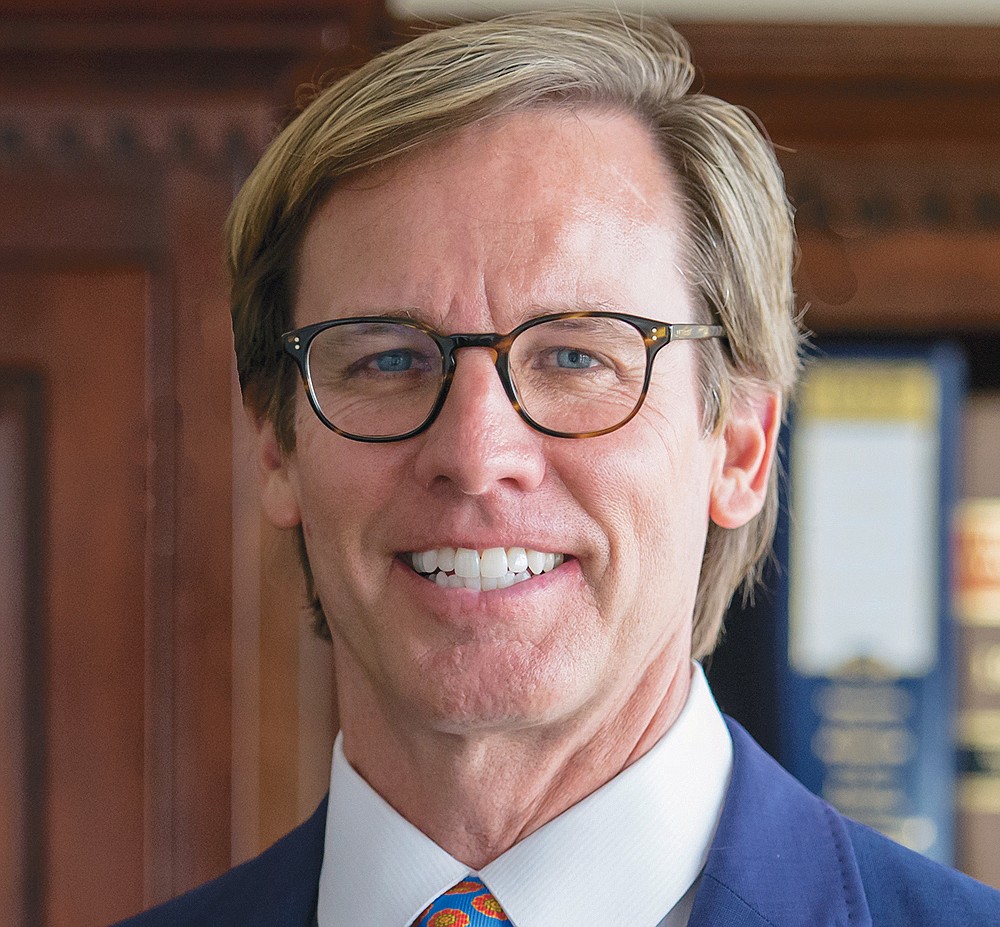
Terrell Hogan partner Alan Pickert is one of 14 Florida representatives in the American Bar Association House of Delegates. He participated in the ABA Midyear Virtual Meeting Feb. 17-22 when 31 measures were considered and approved.
The policy proposals, which are debated by delegates with diverse legal and political backgrounds, enable the ABA to lobby legislators and authorize the filing of legal briefs in support if a resolution on a topic is approved by a majority of the delegates.
Pickert said there are some advantages to conducting the meeting remotely. He doesn’t have air fare or six days of hotel and meal expenses in Chicago, he’s not away from his family and he can continue to practice law.
“Not all resolutions require my participation. If you are at the meeting in person, you can’t just get up repeatedly and leave the room for 20 or 30 minutes. Via the computer, I can do work at my desk, field phone calls, etc., until I am needed throughout the course of the meeting,” Pickert said.
However, he misses the personal contact with colleagues.
“The Florida Caucus typically has lunch and or dinner together. It’s amazing how much I learn from listening to their experiences in and out of the courtroom,” Pickert said.
Pickert said one of the first resolutions passed concerned student loan debt for law students and recent law school graduates.
Advocates for the student loan modifications, Resolution 106C, said that even before COVID-19 slowed the U.S. economy, many young lawyers struggled with their student loans given the legal profession’s uncertain job market and their high student debt.
Studies indicate recent law school graduates carry an average student debt of $145,000. Last summer, the National Association for Law Placement reported that 49% of law schools surveyed stated employers had rescinded employment offers, and other offers were pushed into 2021.
The resolution recommends extending loan repayment terms, allowing either refinancing or transferring of obligations to federal from commercial programs and authorizing suspension or forgiveness of student loans in certain situations.
The sponsor, the Young Lawyers Division, withdrew a companion resolution that urged Congress to amend the U.S. bankruptcy code to ease restrictions on how student loans can be discharged in bankruptcy proceedings because of objections raised by other ABA entities, Pickert said.
As a help to some recent law graduates taking the Bar exam, the delegates approved Resolution 105, which urges that the Bar admission authority of each jurisdiction allow test-takers to bring menstrual products in opaque rather than clear containers, and recommends relaxing other restrictions now in place.
Each jurisdiction develops its own rules and guidelines, and restrictions regarding menstrual products were cited as posing additional pressures and challenges to test-takers.
Two other new policies are geared to help lawyers and law students better manage their well-being and family life, particularly during the COVID-19 pandemic.
Resolution 300A encourages stakeholders in the legal profession to make resources accessible that advance well-being.
Resolution 101A urges governmental entities to allow specially trained facility dogs to assist victims and vulnerable witnesses in any stage of the criminal justice system.
Other resolutions approved that Pickert said might be of interest locally include:
• 10E, which endorses the federal Daniel Anderl Judicial Security and Privacy Act of 2020, or similar legislation, to prohibit the disclosure of personally identifiable information of current and former federal judges and other jurists. The proposed federal law follows the assassination last year of a son of a federal judge in New Jersey.
• 10F, which urges governmental entities to establish law enforcement officer training and implement guidelines to minimize implicit bias in giving exit orders during discretionary traffic enforcement stops where the officer has safety concerns or a reasonable suspicion of criminal activity.
• 103B, which asks the U.S. Department of Justice and the attorney general to withdraw certain AG opinions related to criminal records and U.S. immigration law and replace them with opinions that are consistent with congressional intent, the U.S. Constitution and U.S. treaty obligations.
• 107B, which urges states to adopt certain principles in administering elections for U.S. president and that if a dispute arises as to the proper recipient of the electoral votes for a state, Congress should give controlling effect to the winner of the popular vote for that state unless a state allocates electoral votes by congressional district as is currently done in two states.